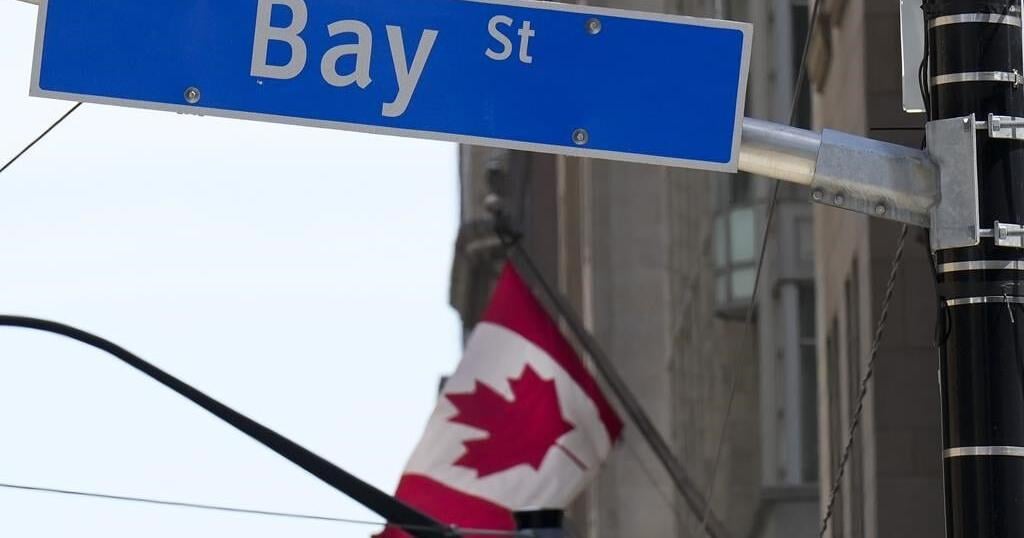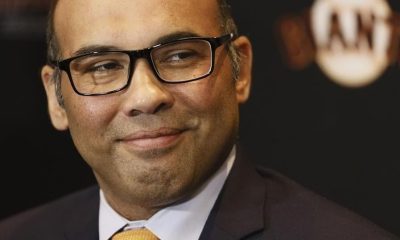TORONTO – Canada’s main stock index posted modest gains Monday, while U.S. markets also rose near the end of the day to kick off the week in the green.
Stocks were down earlier in the afternoon in part because of comments from U.S. Federal Reserve chair Jerome Powell, said Anish Chopra, managing director at Portfolio Management Corp.
Powell said Monday that more interest rate cuts are coming, but not quickly.
“We’re looking at it as a process that will play out over some time,” he said at a conference in Nashville, Tenn.
“It’ll depend on the data, the speed at which we actually go.”
The Fed isn’t in a hurry to cut its key interest rate, said Chopra, as it weighs the upside risks to inflation and the downside risks to the job market.
“Inflation could go up, it could go down, but they believe that if the data remains consistent with what they’ve seen, there will be two more rate cuts coming, but they will be smaller,” said Chopra.
Though the central bank has already signalled it expects to make two more quarter-percentage-point cuts this year, market watchers had been hoping for another outsized cut before the end of the year, he said.
“So I think Powell’s comments from this afternoon disappointed the markets and investors in the sense that if they were anticipating bigger rate cuts, that’s not the news they got.”
In New York, the Dow Jones industrial average was up 17.15 points at 42,330.15. The S&P 500 index was up 24.31 points at 5,762.48, while the Nasdaq composite was up 69.58 points at 18,189.17.
The S&P/TSX composite index closed up 41.31 points at 23,998.13.
At the end of this week, markets will get the latest report on the U.S. labour market, perhaps the most closely watched economic data right now after a couple of softer-than-expected reports prompted fears that higher rates were having too hard an impact on jobs.
If the report is weaker than expected this time, that could change the Fed’s thinking around its interest rate trajectory, said Chopra.
However, the Fed’s next rate decision is in November, he noted, so there’s still another labour report after this week’s release for the central bank to weigh.
Overseas, Asian markets had a frenzied start to the week, with Japanese markets down 4.8 per cent while stocks in China saw their best day in almost 16 years.
Japanese markets sank because investors are questioning whether the new government will be supportive of higher interest rates, said Chopra.
Meanwhile, Chinese markets rallied on the news of more stimulus to the country’s economy, he said.
The Canadian dollar traded for 73.93 cents US, according to XE.com, compared with 74.08 cents US on Friday.
The November crude oil contract was down a penny at US$68.17 per barrel and the November natural gas contract was up two cents at US$2.92 per mmBTU.
The December gold contract was down US$8.70 at US$2,659.40 an ounceand the December copper contract was down five cents at US$4.55 a pound.
— With files from The Associated Press
This report by The Canadian Press was first published Sept. 30, 2024.
Companies in this story: (TSX:GSPTSE, TSX:CADUSD)



























